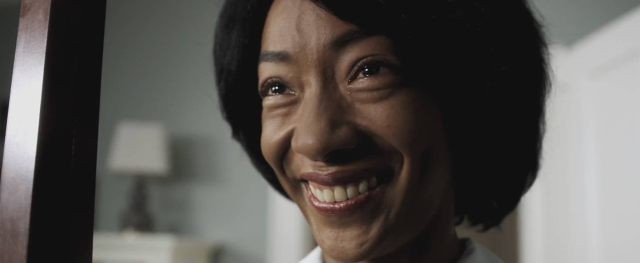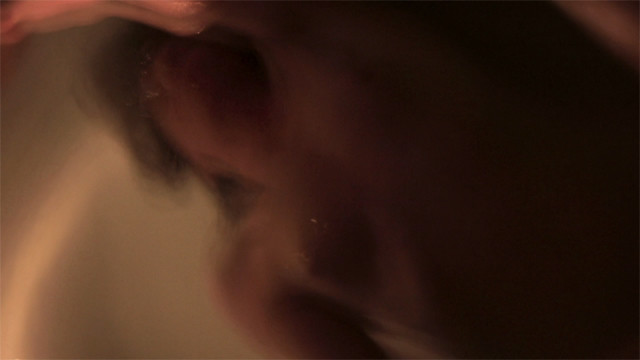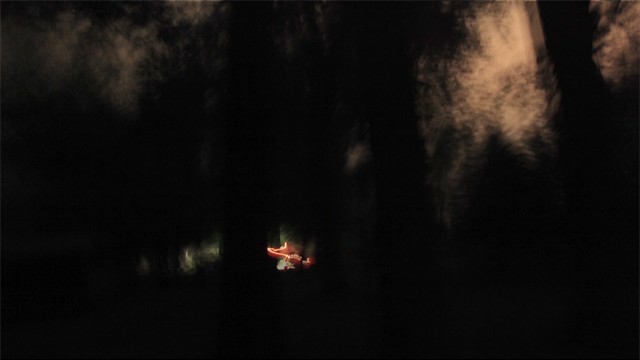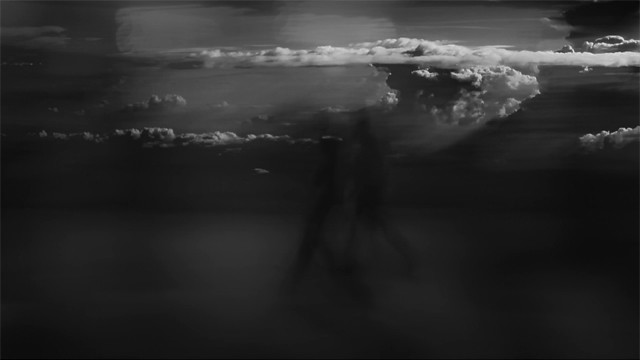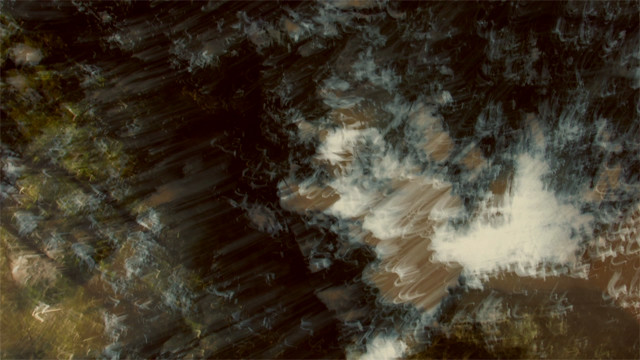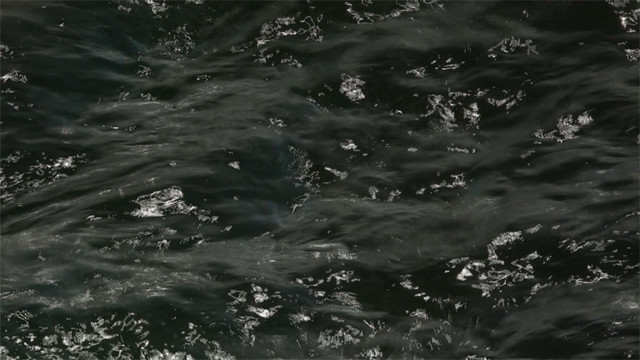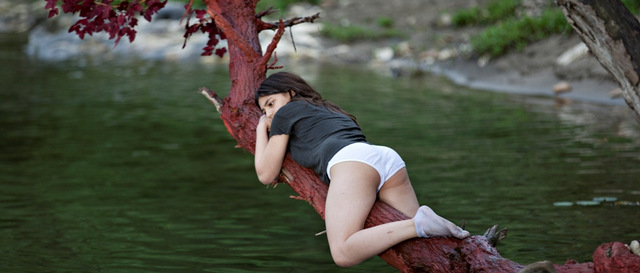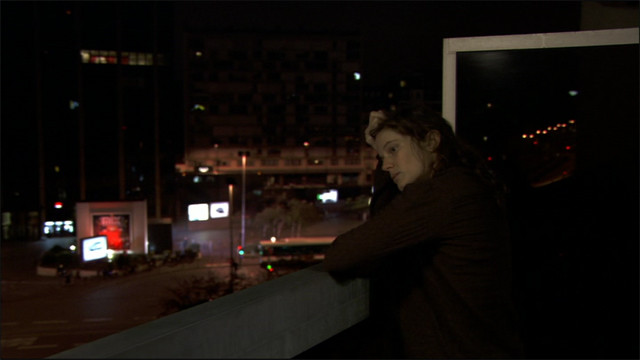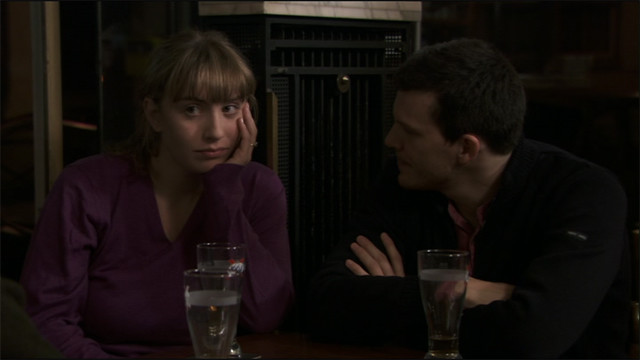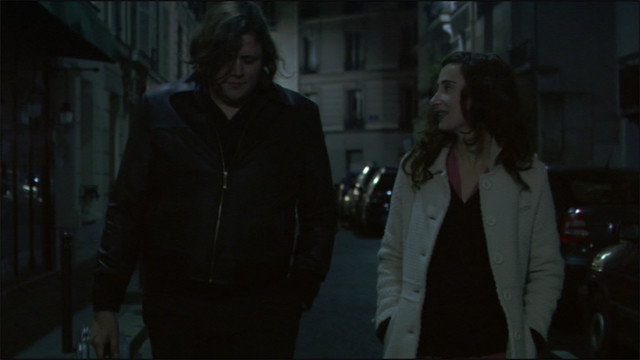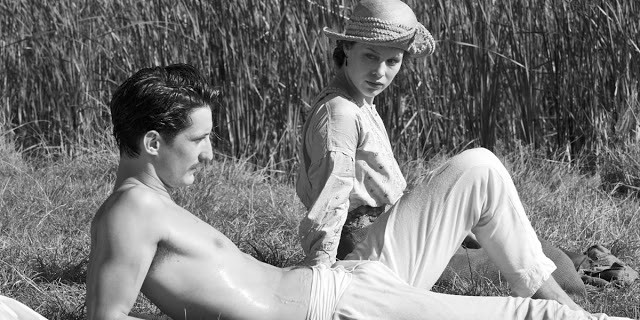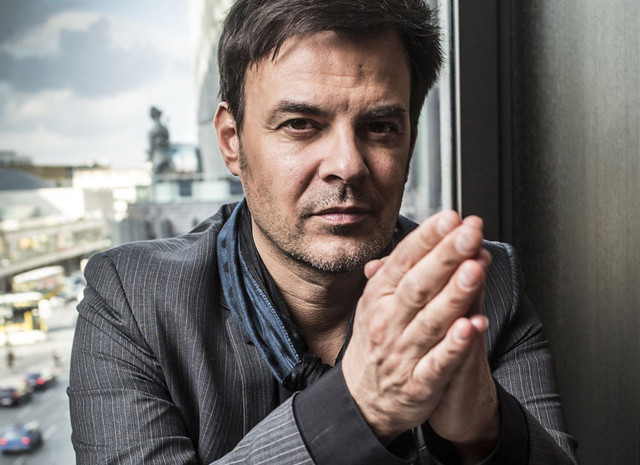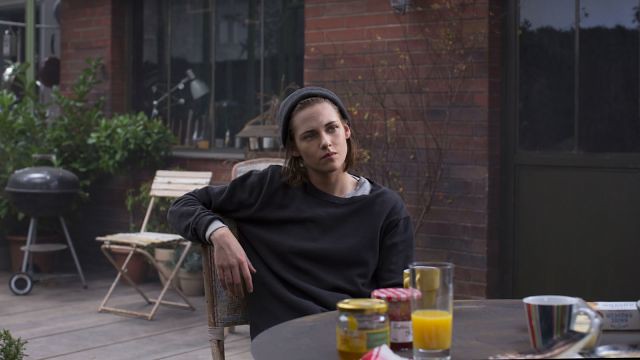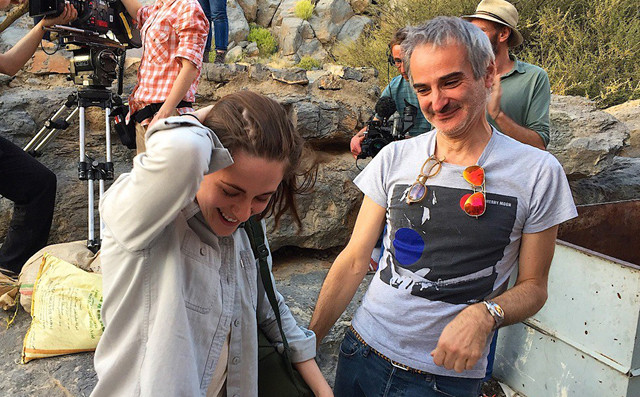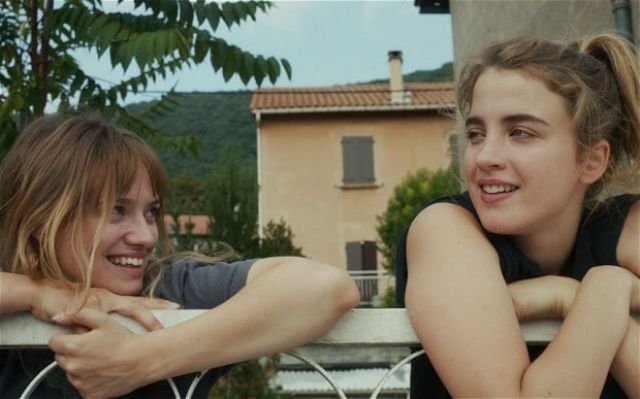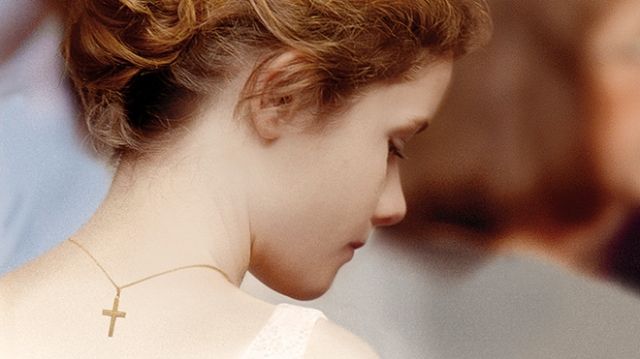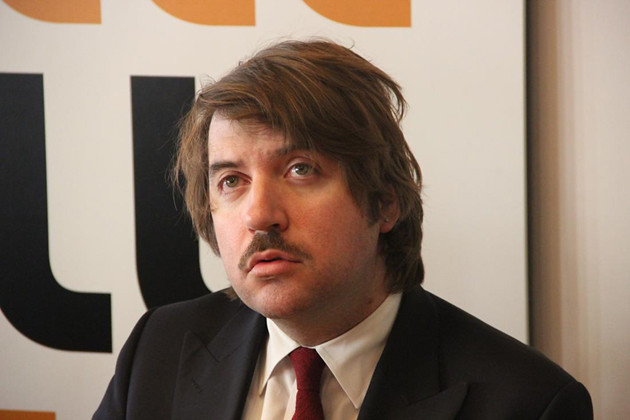
I saw Albert Serra's new film The Death of Louis XIV at New York Film Festival last year. The French New Wave legend Jean-Pierre Léaud plays the title chracter which is unusual for Serra, who mostly works with non-actors in his previous films. As part of FSLC's 20 film Léaud retrospective: From Antoine Doinel to Louis XIV (which runs from 3/29 - 4/6), the film opens this friday 3/31.
Serra is batshit crazy. Once he starts talking, there is no stopping him. As an admirer of his singular artistry, it was a pleasure talking to him at length, even though he did most of the talking. Fair warning. He might sound a tad bit arrogant or non-sensical in this interview. Bear in mind the English is not his first language. But he is a true artist and very passionate about his goal to create something that is truly different and original. He is a searcher and explorer of the cinematic realm. And I respect that.
I’ve been enjoying your work over the years. Bird Song was about the story of Magi, History of My Death was about Casanova & Dracula and now you have The Death of Louis IV. You take inspirations from literary and historical figures both imagined and real. I’ve read about your filmmaking approach where you said ‘Living the present through the past’. What does that mean?
That’s a beautiful quote.
Well, that’s your quote.
It's beautiful. This is true in The Death of Louis IV. You start by asking questions - how the Thirty Years’ War was, what happened or I don’t know, the problems of the state… all these things are like information or clichés. The point is that these meanings are created in front of you when you are shooting the film - OK, you have obviously have to dress an actor like Louis XIV. But then who was really Louis XIV? How did real Louis XIV move? How did he look at people? I don’t know. This has to be created within… I don’t have any idea about that. So the idea that the past can be lived with the same kind of mystery as if it were in present times without any kind of information about the future. So now we are living the past but as we know the future of the past is our present so we can use this.
But to come back and try to live this past in present time with all the innocence and all the mystery of living in the present… this was the point.
So in this sense Jean-Pierre was very good to do that in the film because he keeps the mystery alive. It doesn’t matter how much information you have on Louis XIV. You have the real Louis XIV. Because you never had a moving image of Louis XIV.
This is true.
The only true Louis XIV in cinema is he. Not anything we have in our minds. It was also because of my methodology of using 3 cameras because he (Jean-Pierre) has a really deep relationship with the camera. Since the very beginning we didn’t talk about the subject of the film or even about his character. We didn’t do any rehearsal. It was him realizing facts on set- three cameras, very long takes- chaotic because cameras are moving independently during the shots. So he really couldn’t establish relationship with the camera. As an actor, with one camera you establish relationship and you know what the camera is doing. You want to offer something to it. You want to give something. With all the experiences you have as an actor, you might want to fall back on that relationship you had before because you want to give something concrete. Then it’s quite easy to you fall into cliché to something you already know.
Jean-Pierre was so used to shoot with one camera set up, and suddenly he discovered that there were three cameras- he didn’t know which camera we were rolling, the cameras had freedom to move for the best positions because it’s impossible to move the position with one camera because of the lighting.
So it’s very dark and sometimes I don’t say anything- it was like a performance in some sense. Because there was no previous meaning that he could think about. There was no meaning he can build something around with.
So those two things: Not being able to establish relationship with the camera and not being able to give something made him introspective. Yet all the connections, his link to Louis XIV physically and spiritually was there within him. I imagine he was obsessed playing that role and he gave us all these peripheral, off the frame content that was not cliché, more interesting. He created new gesture for anything. Everything was new. And it’s not even linked with his persona as an actor.
Just one single time or two I allow him to give some of his traces, but in general he was living and breathing the past in present time.
Was Jean-Pierre you only choice for this role?
Yes.
I am wondering how the project came about, because I heard that it was an on going process for four five years.
Yes because it was a commissioned by the Pompidou museum to do it as a performance with Jean-Pierre as Louis XIV dying live in front of the visitors of the museum and we were there shooting also. In a crystal cage with the bed blahblahblah.
But then it was canceled five years ago and we forgot it a little bit and then a producer said two years ago, 'OK why don’t we do it in cinema?' But the idea was a live performance. You know, death and life live. So the film was by chance. It was done in fifteen days. So it was more like performance. I mean it wasn’t shot chronologically obviously because of practical reasons but also I prefer not to shoot chronologically.
I don’t know it was really ambitious spirit of a performance. To look at the history as it was, I don’t know, opaque, no? All the information regarding the death of Louis XIV was opaque. There was nothing really relevant on the subject. Only relevant thing there was was in front of us: Jean-Pierre himself, his body, the decor… there was no meaning, just some three or four facts but without meaning, to have something to do, to shoot--
Medical facts?
Medical facts, you know it’s quite historical. But… So Okay, we will fulfill all this traces of history not as transparent offering as meanings but we will create. We will put volume on it in a very spontaneous way.
Got it.
It’s a historical film. A brilliant film but it’s much more interesting than typical historical dramas. People, not cultivated people who are not specially cinephile are there and really, really into it. I don’t know, It’s the mystery of the performance itself. What is the meaning of everything - the movement, the gesture, every sentence, everything. He gradually moves less and less into total immobility.
What I take away from the film is that everyone dies at the end. Even the king of France who rule the kingdom for more than 70 years dies a horrible death that could have been prevented with modern medicine.
Yeah.
This film is very different from your other films. Your two films I’ve seen, the bird song and the History of My death both take place in mostly outdoors. This one is very confined.
The nature is another character isn’t it? I think as my methodology evolved and matured, I thought I could do different things. It’s the same chaos and same craziness if you think about it. The nature helped in previous films. And there was some kind of spiritual approach. But as my methodology evolved and became more sophisticated, I felt confident that I can do the same kind of things here. Maybe it feels different because it’s a little bit more controlled because the subject demands you more control. If it was Casanova, it doesn’t matter what you do, you can always apply ‘Casanova’ to him- he can do almost everything and get away with it. You can’t do that with Louis XIV. For French people, that would be a sacrilege. Not because it’s not historically accurate, but it’s not…
(I started to laugh)
You know what I mean.
Yes.
You can’t show Louis XIV using toilet.
No no.
I could’ve done something a little crazy and unexpected way, like my other films, more ironical and more physical, more lyrical to break the narrative. But it seemed too risky on this project to do that. Without that, film has some unity of space-time and action. So this is more coherent and calm and sensitive.
It is more coherent.
But it’s wild. (laughs) Shooting with Jean-Pierre was wild. The edit was very well done and it’s very smooth. All the crazy things and the irony are on the side of the doctors.
Irony. Yes.
But I love what was said about the film. The originality of the film is in the clinical approach to death, but the death of very important and dramatic historical figure. It’s quite uncommon to apply clinical approach to human. I like what the New York Film Festival’s catalog said about the movie - there was a beautiful sentence that said it’s a film about the banality of the court and the final moment of the king, but also a film about the banality of death itself.
That’s right.
It’s not something that is applied to Louis XIV.
Tell me about Vicenç Ataio. He is not only hilarious in this but he was great as Casanova in History of My Death. I hear he’s not an actor. He is a scholar, poet and the director of a museum. How did you get him act in your films?
Well because of the physical likeness: I saw some drawings of Casanova. Physically with his face and his nose and everything, he looks a little bit like Casanova. I do like working with non-professional actors because their lack of knowledge of methodology in cinema. It was important to use actors who don’t know how the film was done.
I do have a good intuition for that I think. I never make big mistakes in casting: maybe with secondary actors but never with the leading roles. It’s more challenging. The problem working with professional actors is that they always put some images they already have in their minds between you and them. With unprofessional actors, that doesn’t exist. It’s very beautiful. You work with them without and barriers in a very artificial environment, so you have to be very precise but the end result is very, how to say, it’s more. These characters are born in front of your eyes. It’s really something.
He is really fantastic.
Yeah, yeah. He is the best Casanova ever and probably the best libertine ever in the history of cinema. First or second best. But the best Casanova for sure. This is because of speed. I’ve read Memoirs of Casanova. He is always doing four things at the same time - I’m thinking about this - moving and controlling some women and eating, telling anecdotes and filling categories and going back to anecdotes all at the same time. Living this bright sensation of the moment, mixing great ideas and transforming everything...and this is gorgeous stuff.
You can have this only with actors who have no preconceived ideas, then you can deal with his body and his mind directly.
Was it a lot different directing such an iconic movie legend, Jean-Pierre Léaud?
There was a lot of respect. Even though I didn’t have a lot of authority but to Jean-Pierre, a director is like myth, a god. Because he was born in the era auteur cinema, of the New Wave. For him, the director really creates style of the film. So for him, director is god. But even with that, out of respect I have for him, I couldn’t push him as much as I wanted to. With other professional actors and such, he wasn’t there just because of me. Me but also for himself- because of his career. I mean he worked with the greatest filmmakers in cinema history.
If there were some mistakes in the film, if there was, it was not because I didn’t push him hard enough. It’s just because, I don’t know, chance or something else. And with this methodology I told you- shooting with three cameras, long takes, not telling him exactly what we are shooting, never repeating the same shot again, always mixing the content of different scenes and making variations. It was a fluid atmosphere. Blurring psychologically, blurring narrative, blurring movement, no?
The force of this methodology is so messy. But even an actor with previous experience and knowledge can’t go against that. You can stand up but can’t go against it or you fall down. It’s just a matter of time. He resists. And his resistance becomes the form of the film. He tries something different, yet he doesn’t know what.
In my point of view this film is very deep, very mysterious and very original. He was opposed to that. He couldn’t be in the same exact direction with me. But I hate when they go on same direction as me in the film. It’s a lot more interesting when people go against me. Growls. They give you much more interesting, subtle performances when that happens. But it’s not possible to win for the actors with me.
Are you going to use the same methodology in your next film? I don’t know what you are planning…
Every time it will be evolved, more sophisticated. That is my goal to create something new that’s never been seen before. There are several scenes like that in History of My Death: atmosphere was known because you have seen some of that same atmosphere in other films. Subject wise it shares with other films too. It’s beautiful and well done but it’s not completely new. There are scenes in that film that is completely new, that is not tethered to anything- the acting, the atmosphere, everything.
I really love that film.
I would say 6 or 7 scenes in that film. In Louis XIV maybe two or three.
What’s next for you?
It’s called I am an Artist. It’s about a young artist in present day. It’s the portrait of the contemporary art world.
Wow, OK.
It deals with important subjects - what’s the role of art in our society. Sometimes it’s grotesque but sometime we have frankness of true artist? So I don’t know. It’s tricky.
The Death of Louis XIV opens on Friday, March 31 at the Film Society of Lincoln Center concurrent with Léaud Retrospective.
My review of The Death of Louis XIV
My review of History of My Death
My Review of Bird Song
